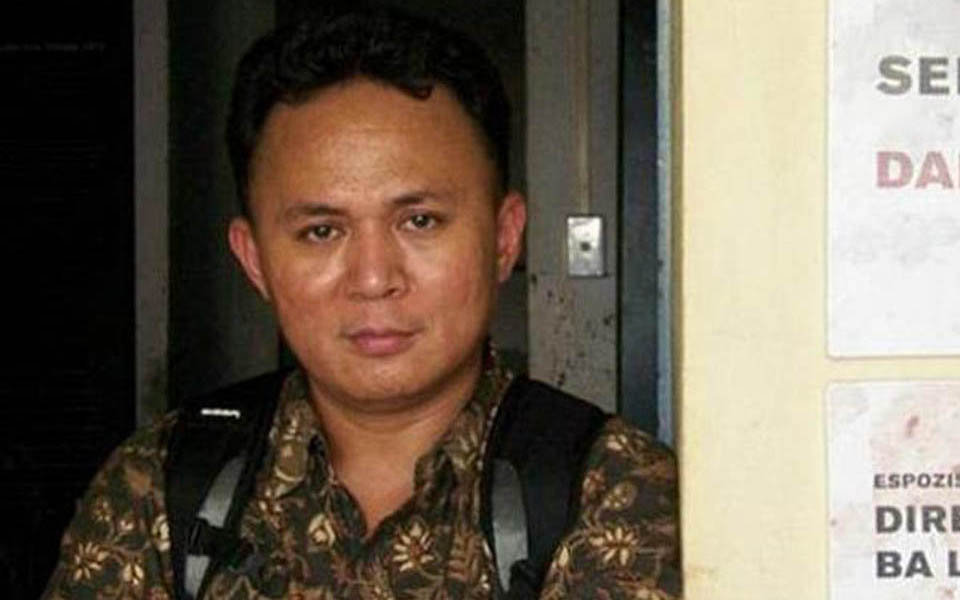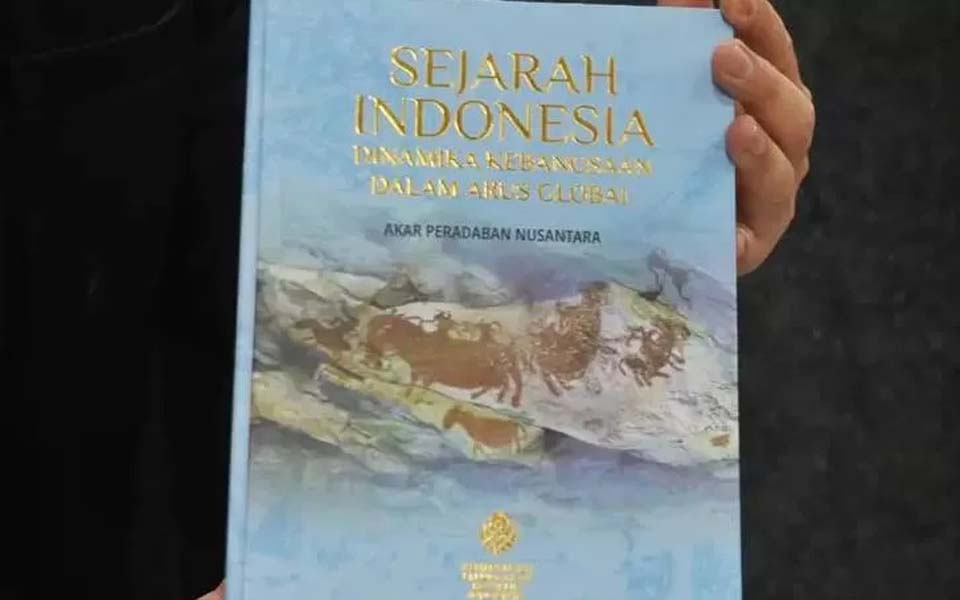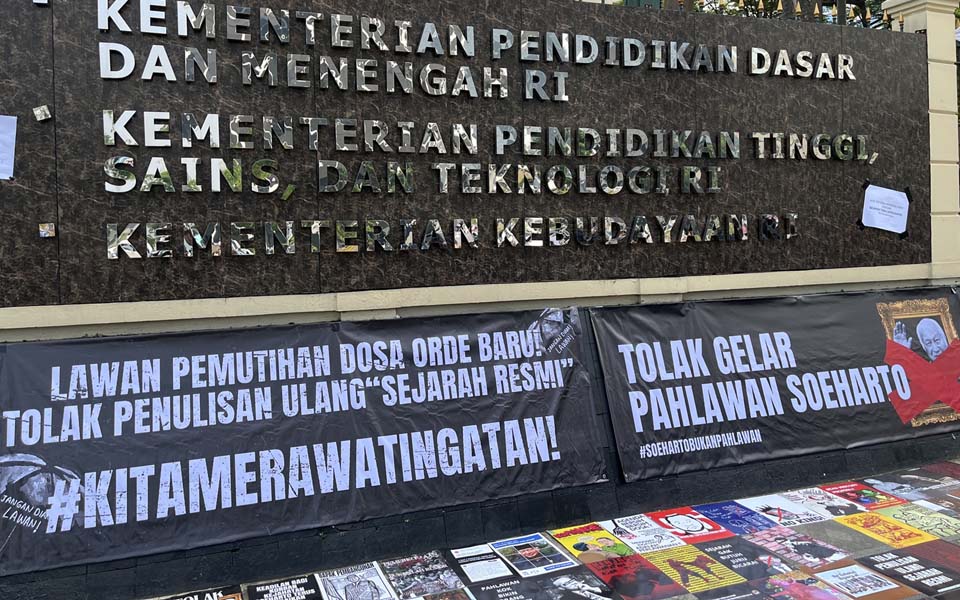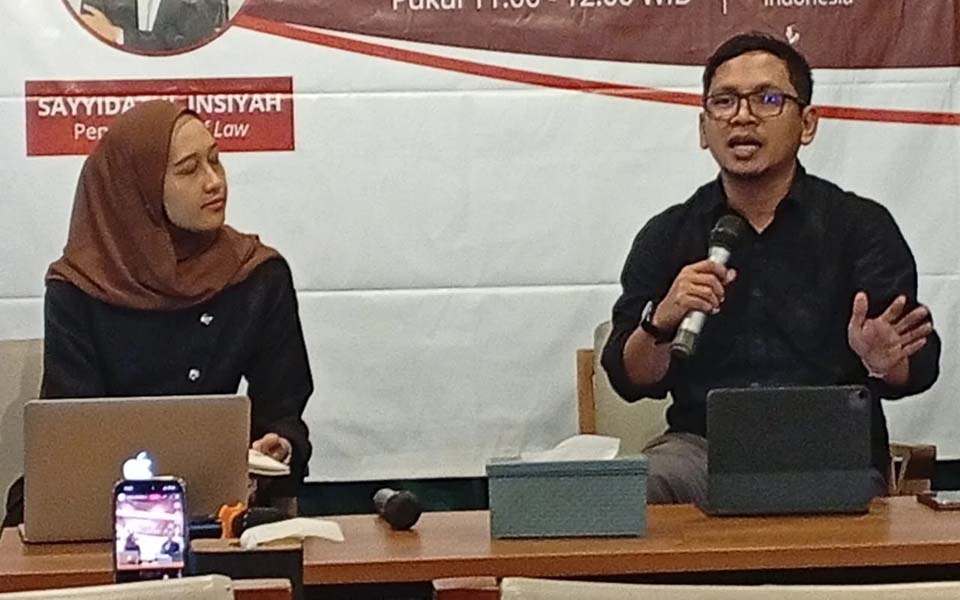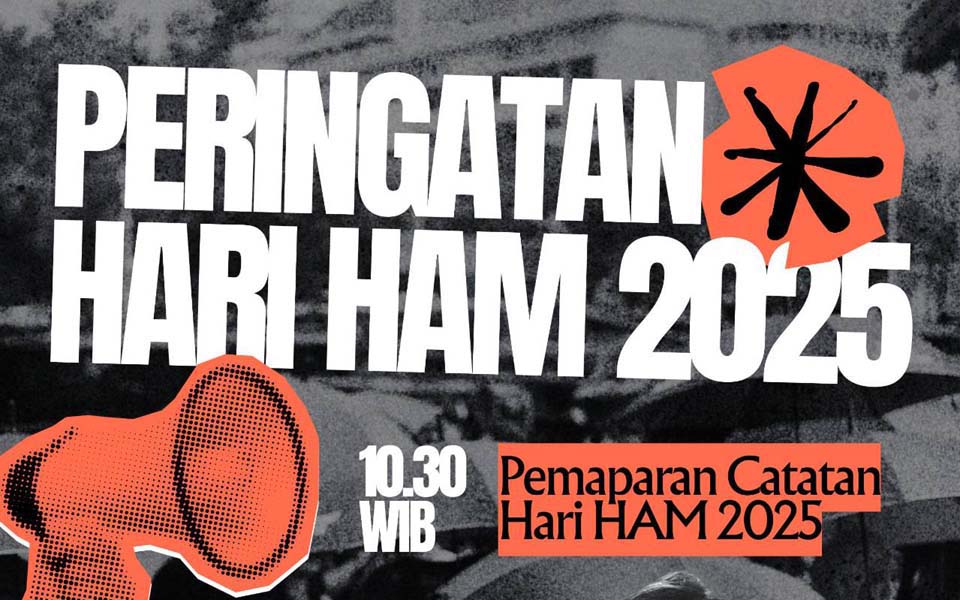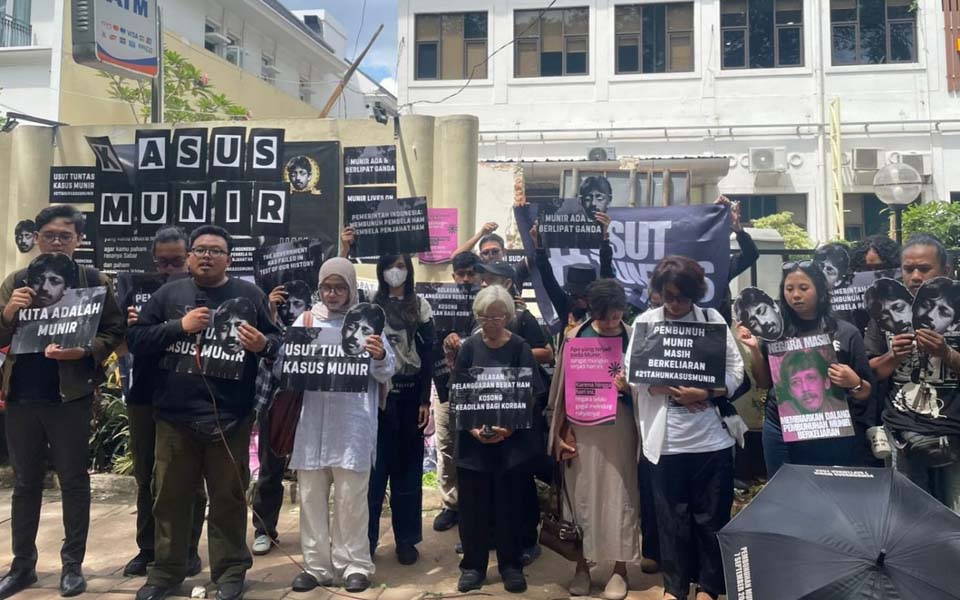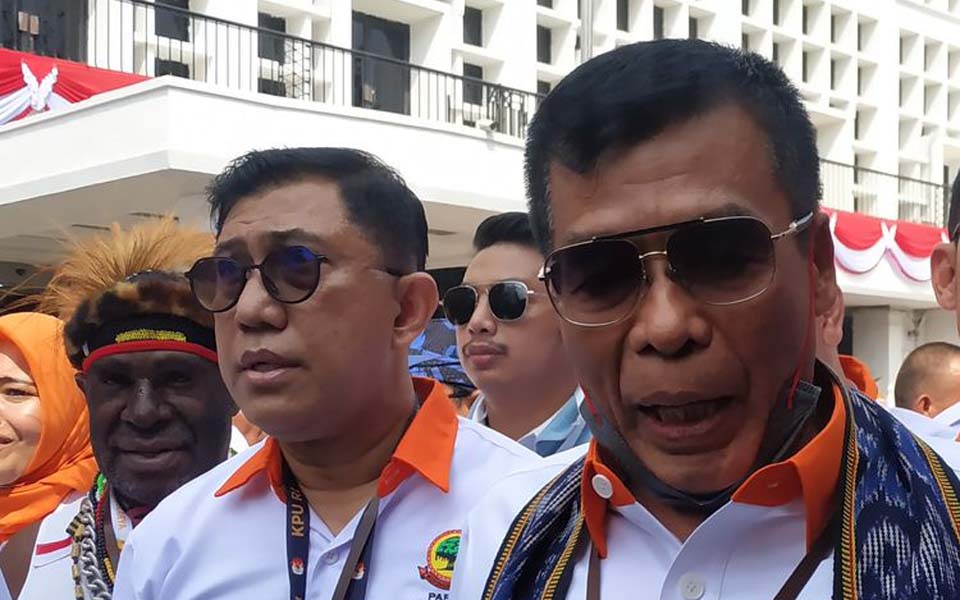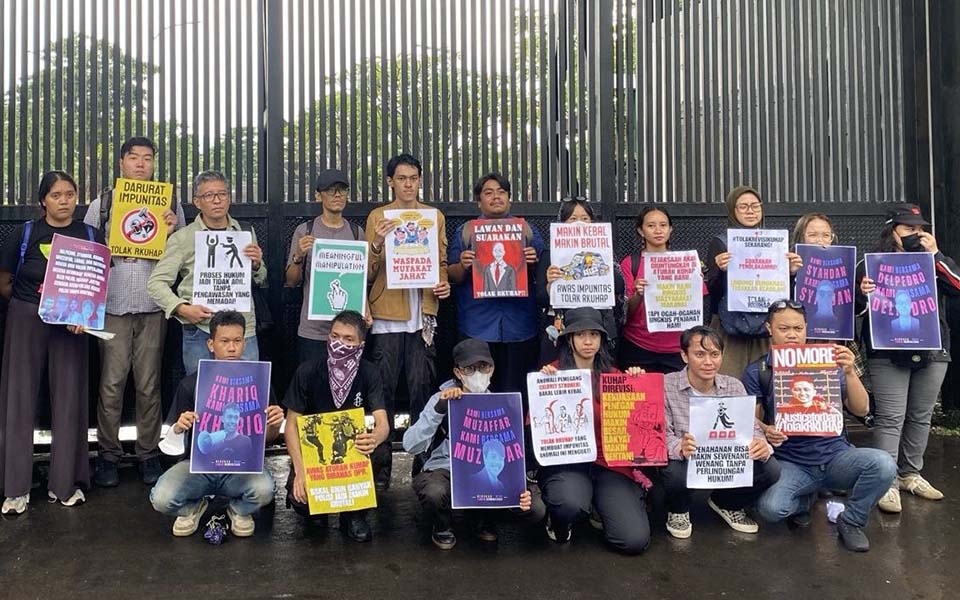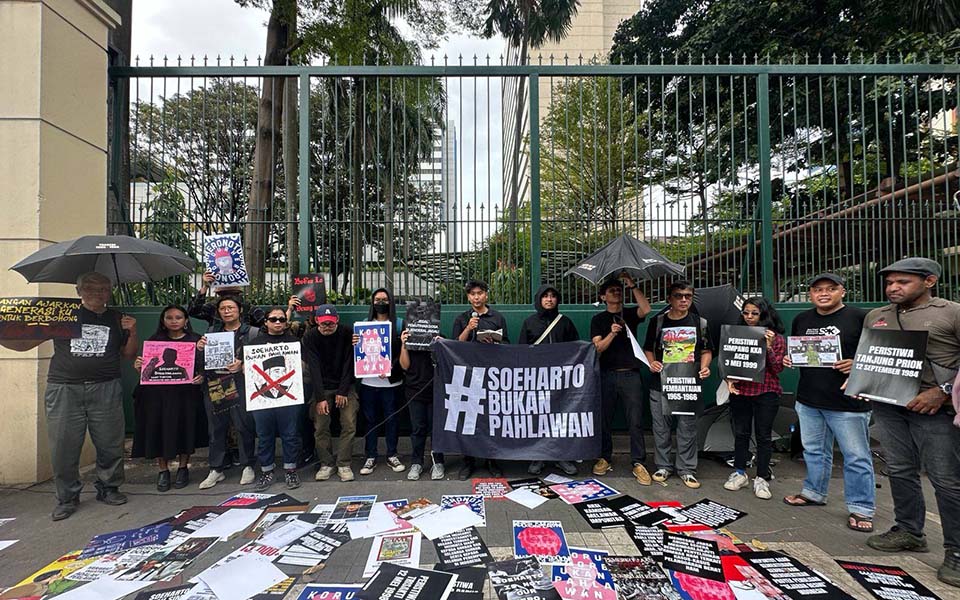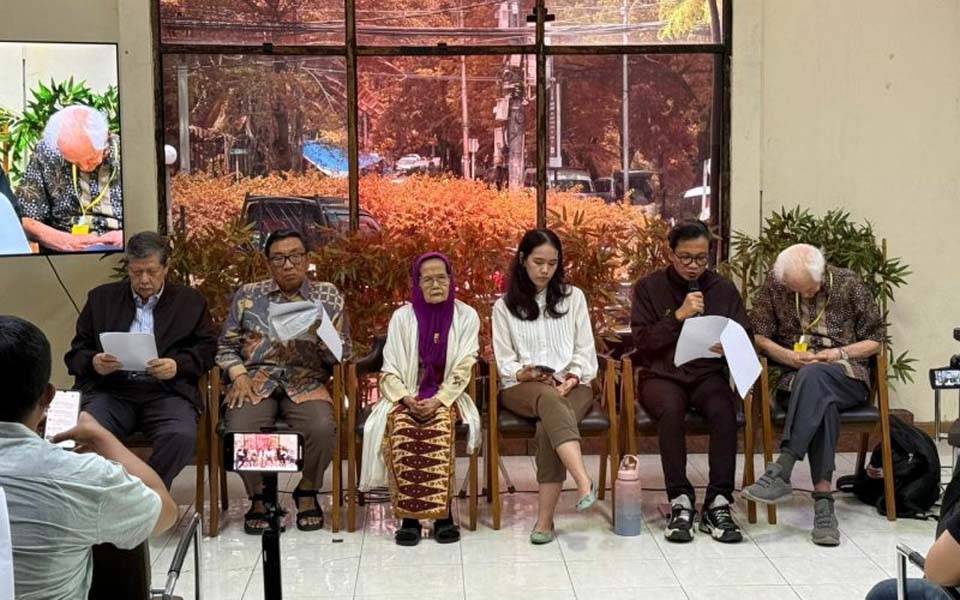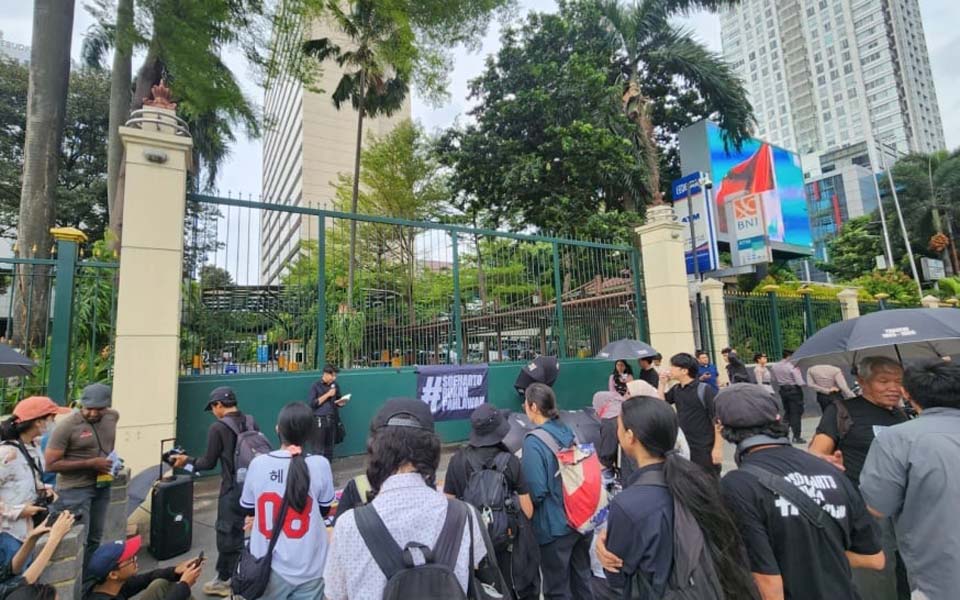Fedhly Averouss Bey, Jakarta – Whoever it was who took Munir’s life has yet to be uncovered and police are still investigating it. In order that the case gets more serious attention, it will be taken to the 75th session of the United Nations Working Group.
The session is planned to be held in Bangkok between May 26 to June 6 and represents a special meeting to deal with people who have been forcibly disappeared (UNWGEID).
The two groups which are take the case to the session is the Association of Families of Missing Persons (Ikohi) and the Commission for Missing Persons and Victims of Violence (Kontras). The two organisations will be Indonesia’s non-government organisation delegation at the session.
“Although it is not included as a case of forced disappearance, Munir was considered to be a person who dedicated his life to uncovering and ending cases of the forced disappearance of persons”, Ikohi chairperson Mugihanto told journalists at a joint press conference at the Kontras’ offices on Jalan Borobudur in Central Jakarta on Monday May 23. Also present was the head of Kontra’s internal affairs department, Sri Suparyati.
By taking Munir’s case before the session, Mugihanto hopes that the brains behind Munir’s murder will be more quickly exposed. “We hope that the UN’s Working Groups can pressure the Indonesian government to be serious in its efforts to solve the case and make the brains and the perpetrator’s of Munir’s murder be held responsible”, he explained.
As well as the Munir case, Ikohi will also present 15 other cases of people who were disappeared during the May riots and Tanjung Priok. Kontras meanwhile will present 50 cases that occurred in Manggarai and Poso1.
During the session, Ikohi and Kontras will ask for the draft convention against forced disappearances which was adopted by the UN Human Rights Commission in 1998 to ratified immediately. (asy)
Notes:
1. Following by the fatal shooting of student protesters in Jakarta in May 1998, mass rioting broke out resulting in the death of as many as 1000 people and scores of others who are still unaccounted for. Tanjung Priok refers to 1984 killings of Islamic protesters by the military during a rally in the North of Jakarta. On March 10, 2004, farmers attacked the Manggarai police station in regional capital of Ruteng in Flores, after several of their colleges were arrested and beaten by police following a long running land dispute. Police fired shots to disperse the crowd, killing four and injuring 28. The Poso region of Central Sulawesi has seen years of sectarian violence between Muslims and Christians since 2000, much of which has been provoked by the Indonesian armed forces and the radical Islamist Laskar Jihad group.
[Translated by James Balowski.]





